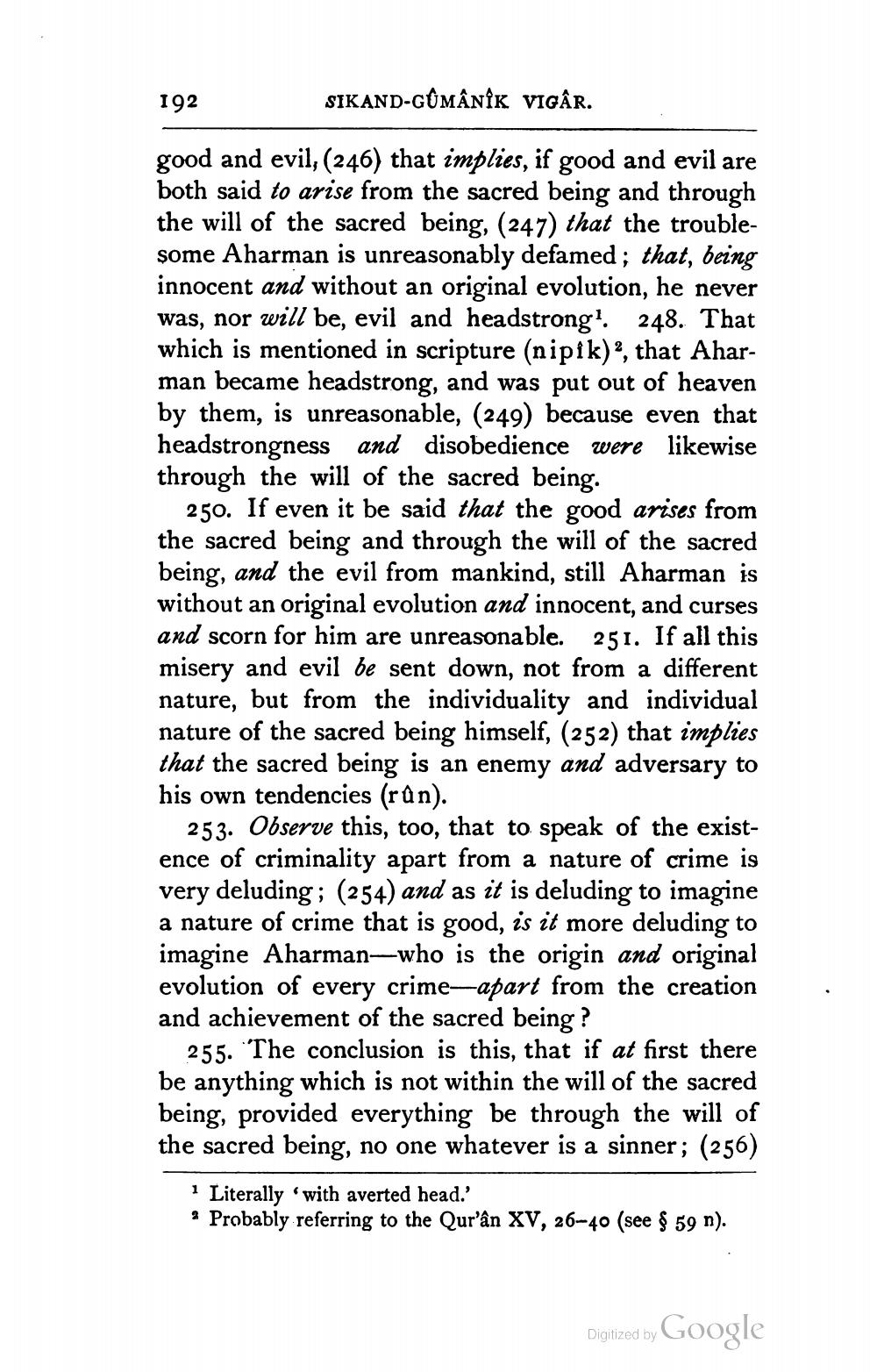________________
192
SIKAND-GOMÂNİK VIGÂR.
good and evil, (246) that implies, if good and evil are both said to arise from the sacred being and through the will of the sacred being, (247) that the troublesome Aharman is unreasonably defamed; that, being innocent and without an original evolution, he never was, nor will be, evil and headstrong? 248. That which is mentioned in scripture (nipik)?, that Aharman became headstrong, and was put out of heaven by them, is unreasonable, (249) because even that headstrongness and disobedience were likewise through the will of the sacred being.
250. If even it be said that the good arises from the sacred being and through the will of the sacred being, and the evil from mankind, still Aharman is without an original evolution and innocent, and curses and scorn for him are unreasonable. 251. If all this misery and evil be sent down, not from a different nature, but from the individuality and individual nature of the sacred being himself, (252) that implies that the sacred being is an enemy and adversary to his own tendencies (rûn).
253. Observe this, too, that to speak of the existence of criminality apart from a nature of crime is very deluding ; (254) and as it is deluding to imagine a nature of crime that is good, is it more deluding to imagine Aharman—who is the origin and original evolution of every crime-apart from the creation and achievement of the sacred being ?
255. The conclusion is this, that if at first there be anything which is not within the will of the sacred being, provided everything be through the will of the sacred being, no one whatever is a sinner; (256)
1 Literally with averted head.' * Probably referring to the Qur'ân XV, 26-40 (see § 59 n).
Digitized by Google




